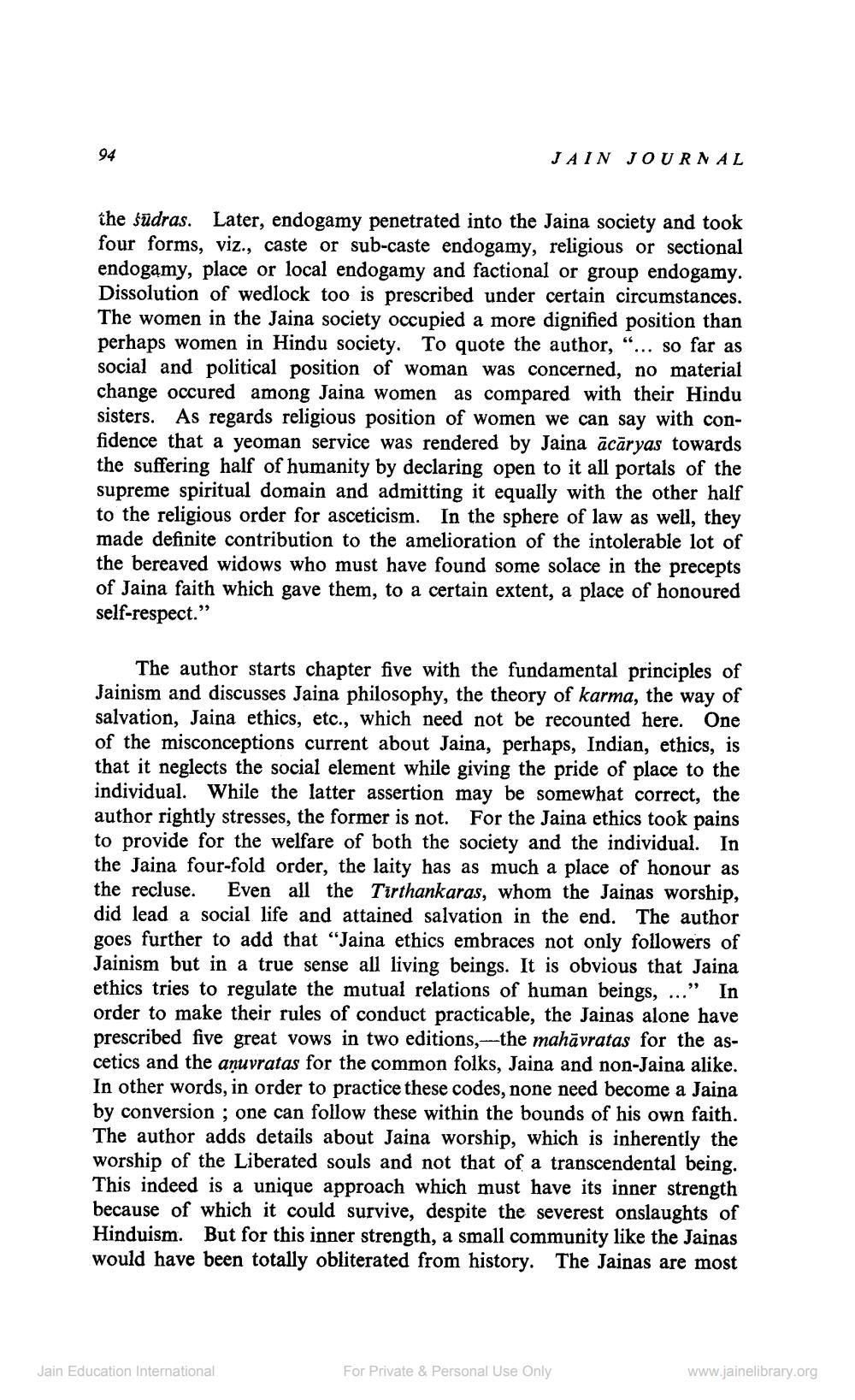Book Title: Jain Journal 1967 10 Author(s): Jain Bhawan Publication Publisher: Jain Bhawan Publication View full book textPage 7
________________ JAIN JOURNAL the südras. Later, endogamy penetrated into the Jaina society and took four forms, viz., caste or sub-caste endogamy, religious or sectional endogąmy, place or local endogamy and factional or group endogamy. Dissolution of wedlock too is prescribed under certain circumstances. The women in the Jaina society occupied a more dignified position than perhaps women in Hindu society. To quote the author, "... so far as social and political position of woman was concerned, no material change occured among Jaina women as compared with their Hindu sisters. As regards religious position of women we can say with confidence that a yeoman service was rendered by Jaina ācāryas towards the suffering half of humanity by declaring open to it all portals of the supreme spiritual domain and admitting it equally with the other half to the religious order for asceticism. In the sphere of law as well, they made definite contribution to the amelioration of the intolerable lot of the bereaved widows who must have found some solace in the precepts of Jaina faith which gave them, to a certain extent, a place of honoured self-respect.” The author starts chapter five with the fundamental principles of Jainism and discusses Jaina philosophy, the theory of karma, the way of salvation, Jaina ethics, etc., which need not be recounted here. One of the misconceptions current about Jaina, perhaps, Indian, ethi that it neglects the social element while giving the pride of place to the individual. While the latter assertion may be somewhat correct, the author rightly stresses, the former is not. For the Jaina ethics took pains to provide for the welfare of both the society and the individual. In the Jaina four-fold order, the laity has as much a place of honour as the recluse. Even all the Tirthankaras, whom the Jainas worship, did lead a social life and attained salvation in the end. The aut goes further to add that “Jaina ethics embraces not only followers of Jainism but in a true sense all living beings. It is obvious that Jaina ethics tries to regulate the mutual relations of human beings, ..." In order to make their rules of conduct practicable, the Jainas alone have prescribed five great vows in two editions, the mahāvratas for the ascetics and the anuvratas for the common folks, Jaina and non-Jaina alike. In other words, in order to practice these codes, none need become a Jaina by conversion ; one can follow these within the bounds of his own faith. The author adds details about Jaina worship, which is inherently the worship of the Liberated souls and not that of a transcendental being. This indeed is a unique approach which must have its inner strength because of which it could survive, despite the severest onslaughts of Hinduism. But for this inner strength, a small community like the Jainas would have been totally obliterated from history. The Jainas are most Jain Education International For Private & Personal Use Only www.jainelibrary.orgPage Navigation
1 ... 5 6 7 8 9 10 11 12 13 14 15 16 17 18 19 20 21 22 23 24 25 26 27 28 29 30 31 32 33 34 35 36 37 38 39 40 41 42 43 44 45 46 47 48 49 50
